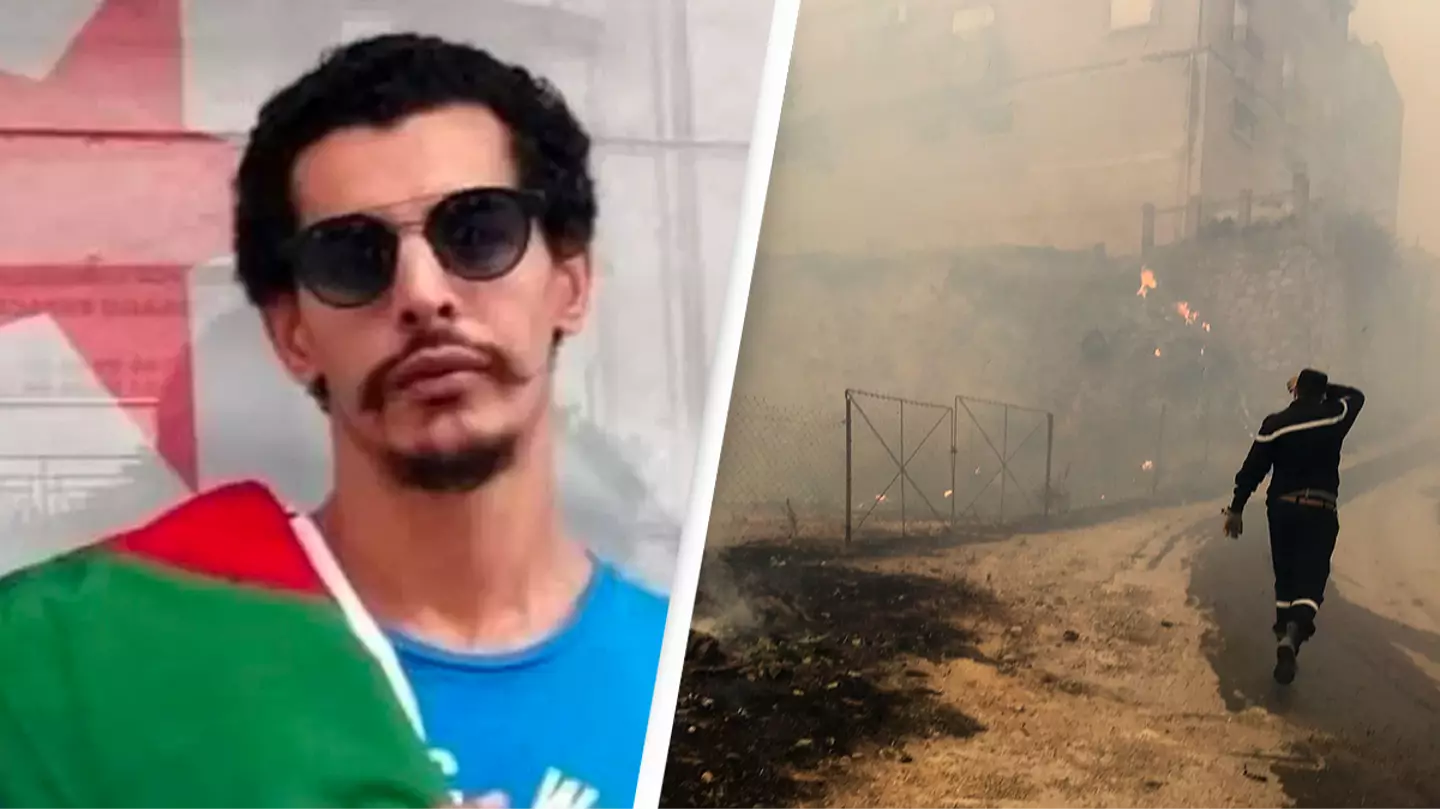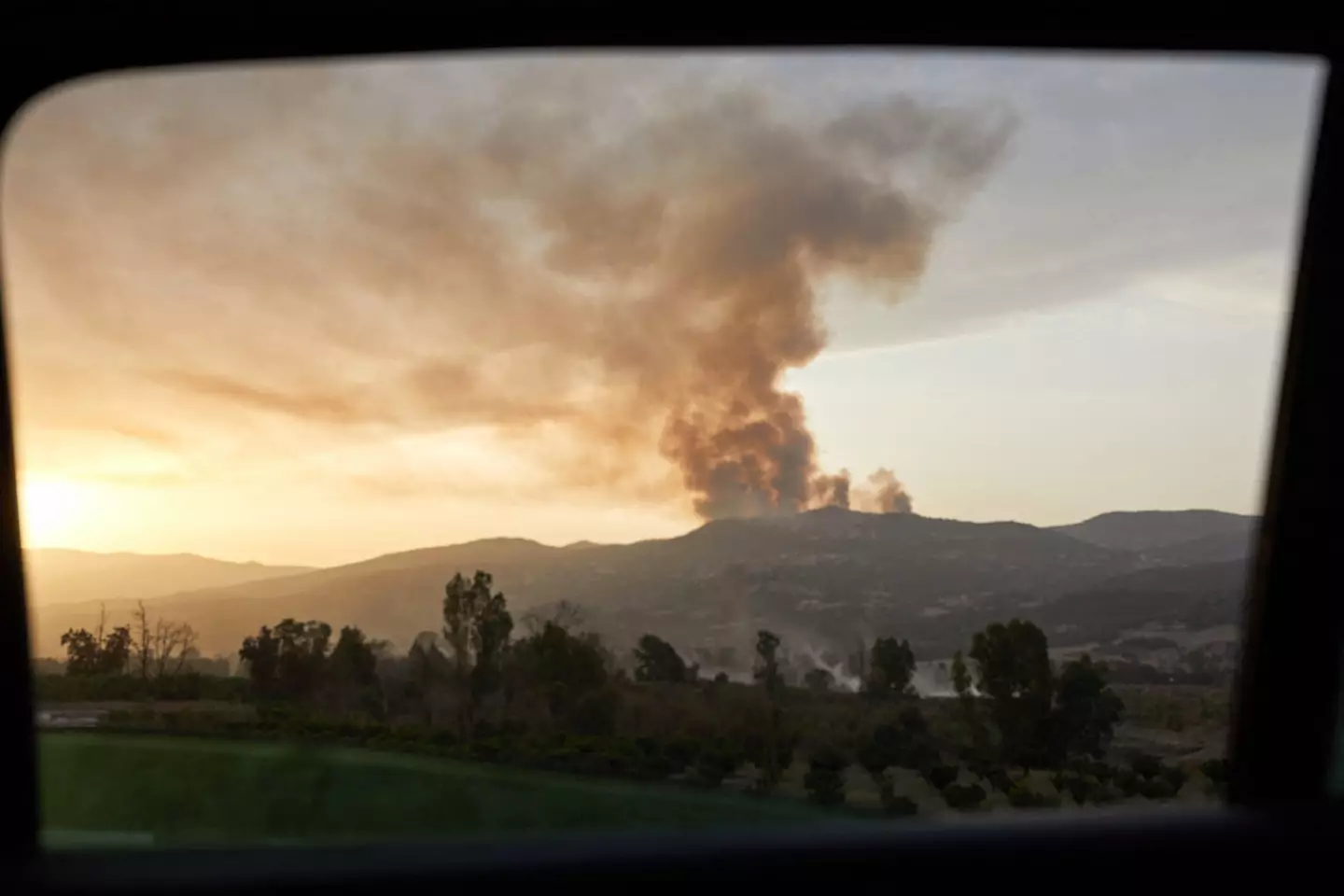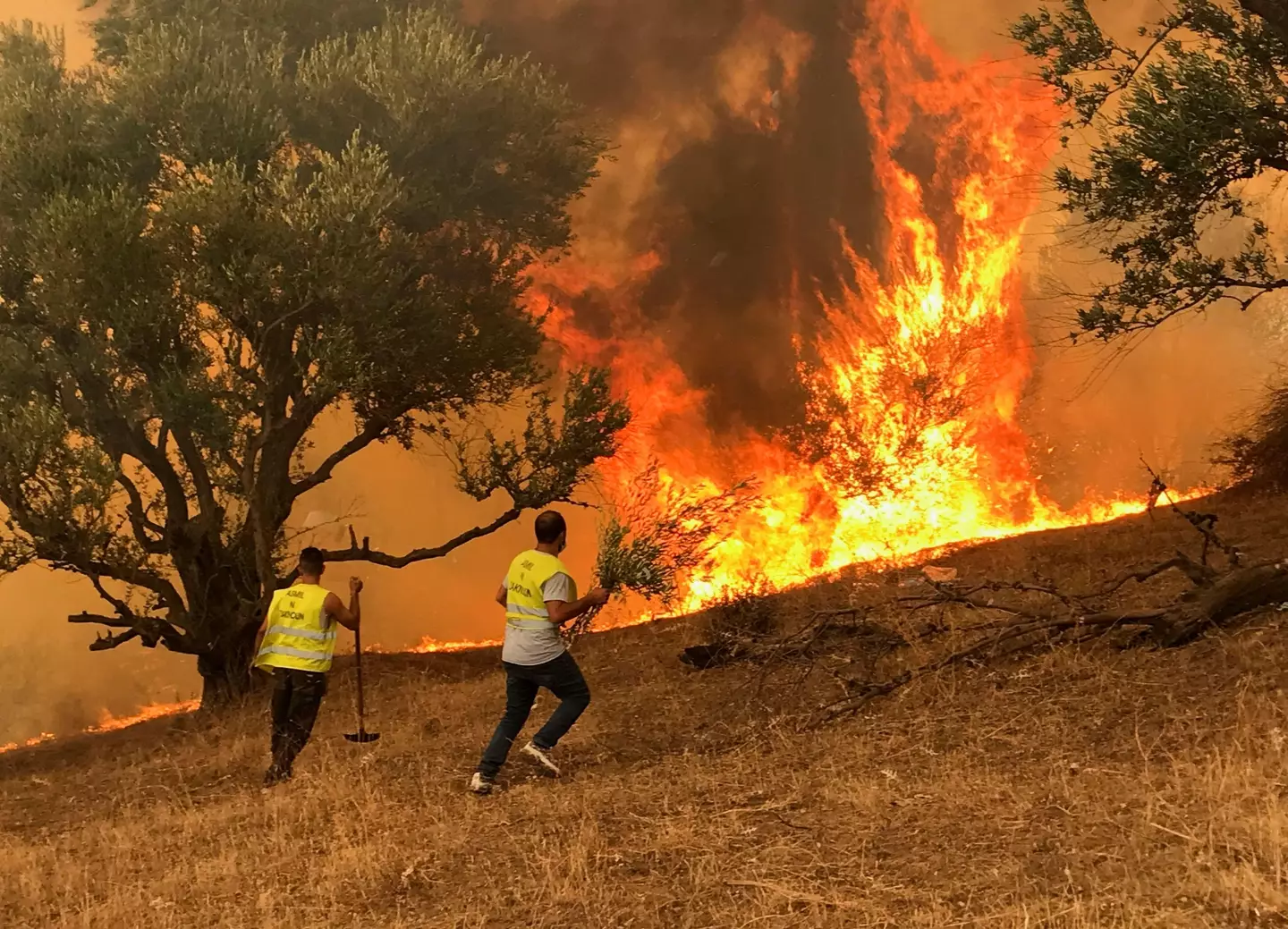
49 people have been sentenced to death in Algeria after a man was lynched to death by a mob which had falsely accused him of starting wildfires.
Last year Algeria was struck by a series of devastating wildfires, with at least 90 people dying in the horrific incidents.
Djamel Ben Ismail, 38, travelled to the area to help pitch in and fight the fires, tweeting that he would set off to 'give a hand to our friends' in the Kabylie region of Algeria, which is located east of capital city Algiers.
The Kabylie region had been the worst hit part of the country by the devastating wildfires and he wanted to help out.
Advert
However, shortly after he arrived to help deal with the series of blazes he began facing accusations that he was starting fires.
On 11 August, 2021 footage allegedly showing Ben Ismail being attacked, tortured and burned was released, with his brother urging people to delete it.

According to the Associated Press, the 49 people who have been sentenced to death will likely instead serve terms of life imprisonment, as Algeria has not carried out a death penalty sentence since 1993.
In addition to the 49 people given the death sentence, a further 28 more were given prison sentences ranging between two and 12 years behind bars.
Over 100 suspects were judged in the trial over the 38-year-old's death and the vast majority of them found guilty.
Ben Ismail had arrived in the village of Larbaa Nath Irathen and had been accused of starting fires, reportedly because he was not a member of the local community.
He had been inside a police station where he was being protected before being dragged outside and killed, with his body then burned.
The real cause of the fires had been dry conditions and intense heat, though authorities had also claimed 'criminals' were responsible.

Police said that photos of the lynching posted online had helped them identify suspects in the case, while Benn Ismail's family asked why people filming his death didn't try to save him.
There are also political factors to the trial, as five people were convicted in absentia both on charges of being involved in the killing and for being part of a banned separatist movement called MAK.
The group's leader Ferhat M’henni, currently residing in France, was one of the accused on trial.
Algerian authorities claim MAK are responsible for the deadly wildfires, while defence lawyers have argued that torture was used to obtain confessions and that the trial was an attempt to stigmatise the Kabylie region.
Topics: World News, Crime, News